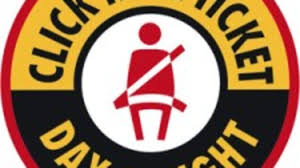Click it or Ticket this holiday season
By submitted, 11/9/20 9:37 AMHOPE —This Thanksgiving, City of Hope Law Enforcement will team up with the U.S. Department of Transportation’s National Highway Traffic Safety Administration on a high-visibility Click It or Ticket campaign to work toward reducing the number of fatalities that occur when vehicle passengers fail to buckle up.
Thanksgiving is one of the busiest travel times of the year. With millions of Americans on the road en route to visit friends and family for the Thanksgiving holiday, it is more essential than ever to ensure all vehicle passengers are buckled up. With more vehicles on the roads, the chances of being involved in a vehicle crash increase greatly. For this reason, law enforcement will be patrolling the streets, looking for unbuckled passengers. If they spot you, they will pull you over and issue a ticket.
The Click It or Ticket campaign is designed to save lives by making sure all Hope, Arkansas drivers and passengers get the message to wear their seat belts. The campaign combines powerful messages about seat belt safety with increased patrolling for all unbuckled motorists.
“Wearing a seat belt is the single most effective thing to help prevent you from injury or death in a vehicle crash,” said Assistant Chief Tomlin. “Tragically, over half of the people who died in a fatal traffic crash during Thanksgiving 2016 were not wearing a seat belt at the time of the crash. This year, we will be out in full force to ensure drivers and passengers alike are buckled up as they travel to their Thanksgiving destinations. Those disobeying the law will be pulled over and ticketed.”
During the 2016 Thanksgiving weekend (6 p.m. Wednesday, November 23, to 5:59 a.m. Monday, November 28), 341 people were killed in motor vehicle crashes nationwide. Tragically, 49 percent of those killed were unbuckled, representing a decrease in seat belt use compared to the same weekend in 2015, when 52 percent of those killed in traffic crashes were unrestrained. Nighttime proved even more deadly, with 55 percent of Thanksgiving weekend crashes occurring at night.




